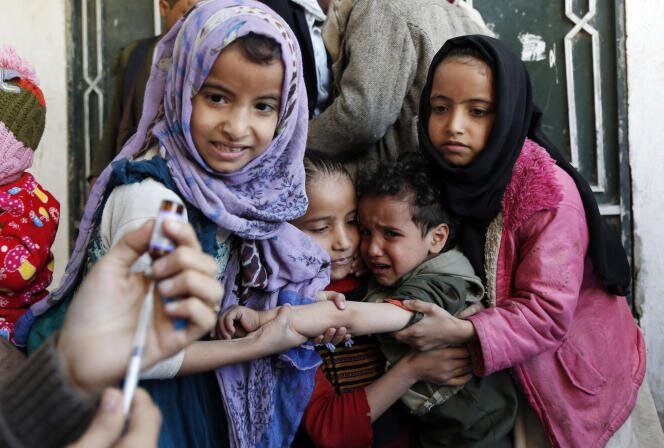TEHRAN – Approximately 98% of the eligible population of the national program for vaccination against measles have been vaccinated, Deputy Health Minister Alileza Leisi said.
However, 100,000 to 20,000 children under the age of one have not yet been vaccinated, the IRNA quotes Raeisi as saying.
Meanwhile, about 5% of vaccinated individuals develop measles, he added.
Measles is a potentially fatal disease. Severe complications include pneumonia, diarrhea, blindness, and encephalitis (brain swelling). The measles vaccine (two doses) is administered at 12 and 18 months.
Iran’s measles vaccination programme began in 1984 when 34% of the population was vaccinated in the first year, and six years later, 90-95% of the population was vaccinated. Additionally, in 2003, 33 million people were vaccinated in a national program to eradicate measles in the country.
In April 2023, the World Health Organization confirmed that measles and rubella had been eradicated in Iran.
However, concerns about the spread of measles in the country are growing. Destroyed vaccination programs in countries like Afghanistan and Pakistan are the main risk factors that threaten the health of Iranians, Leshi stressed.
Approximately 603 measles have been identified over past Iranian years, which ended on March 19th. Iran and foreigners account for 91% and 9% of cases, respectively. Chabahar, Ahvaz, Hormozgan and Zahedan have 97 patients, 86 patients, 72 patients and 68 patients, with the highest number of infected cases, officials noted.
Approximately 33% of cases are infants under the age of 1 year old, with 30% of children aged 1 to 4 years old. Sadly, four infants under the age of six lost their lives primarily due to malnutrition or underlying medical conditions, Raeisi added.
So far, around 82 confirmed cases have been reported in Iran since the beginning of the current year, officials said.
Measles Antibody Kit
In May 2024, Iran received a total of 160 measles antibody kits with the help of the World Health Organization (WHO) and the European Civil Protection and Humanitarian Aid Operations (ECHO).
The procurement was intended to enhance Iran’s ability to diagnose measles.
The kit was donated to the Iranian National Institute of Measles Reference to strengthen its capabilities to diagnose measles and to enhance the country’s ability to respond effectively to outbreaks, the WHO website reported on May 12.
The report said it has procured and provided the kit to the National Influenza Centre, which will serve as the National Measles Reference Institute for Measles, Rubella and other respiratory infections.
“Providing antibody antibody kits to the Islamic Republic of Iran and Mission Head Syed Jaffar Hussain, representative and director of the Islamic Republic of Iran is an important step in strengthening the Islamic Republic of Iran, the ability to effectively detect and respond to measles outbreaks and maintain the status of measles elimination.”
Measles remains a major public health concern worldwide, and timely and accurate diagnosis is important for effective outbreak response.
Recent surveillance data shows that more than half of the country’s measles incidents are among Afghan refugees.
The national vaccination programme in Iran’s Islamic Republic will establish further capabilities and quality control mechanisms for laboratory surveillance in some Iranian provinces.
This can help reduce the time for diagnosis if measles cases continue to increase.
Since April 2022, the Islamic Republic of Iran has experienced several measles outbreaks following the influx of refugees and migrants in Afghanistan.
However, thanks to its timely and comprehensive response, the Islamic Republic of Iran was able to keep measles free as a public health concern.
mt/mg

